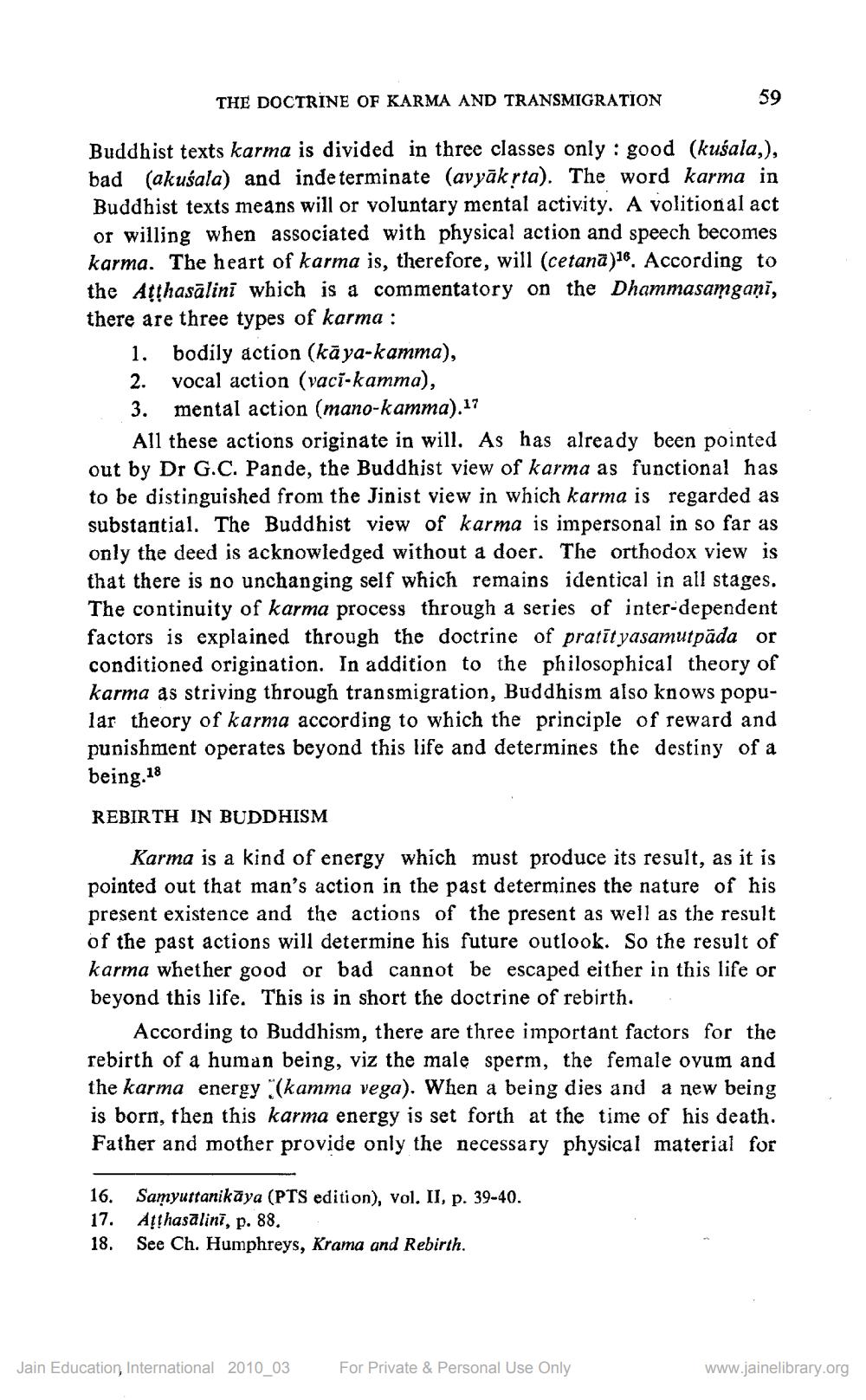________________
THE DOCTRINE OF KARMA AND TRANSMIGRATION
59
Buddhist texts karma is divided in three classes only : good (kušala,), bad (akusala) and indeterminate (avyāk rta). The word karma in Buddhist texts means will or voluntary mental activity. A volitional act or willing when associated with physical action and speech becomes karma. The heart of karma is, therefore, will (cetana)16. According to the Atthasālini which is a commentatory on the Dhammasamgaņi, there are three types of karma :
1. bodily action (kāya-kamma), 2. vocal action (vaci-kamma),
mental action (mano-kamma).17 All these actions originate in will. As has already been pointed out by Dr G.C. Pande, the Buddhist view of karma as functional has to be distinguished from the Jinist view in which karma is regarded as substantial. The Buddhist view of karma is impersonal in so far as only the deed is acknowledged without a doer. The orthodox view is that there is no unchanging self which remains identical in all stages. The continuity of karma process through a series of inter-dependent factors is explained through the doctrine of pratītyasamutpāda or conditioned origination. In addition to the philosophical theory of karma as striving through transmigration, Buddhism also knows popular theory of karma according to which the principle of reward and punishment operates beyond this life and determines the destiny of a being. 18
REBIRTH IN BUDDHISM
Karma is a kind of energy which must produce its result, as it is pointed out that man's action in the past determines the nature of his present existence and the actions of the present as well as the result of the past actions will determine his future outlook. So the result of karma whether good or bad cannot be escaped either in this life or beyond this life. This is in short the doctrine of rebirth.
According to Buddhism, there are three important factors for the rebirth of a human being, viz the male sperm, the female oyum and the karma energy (kamma vega). When a being dies and a new being is born, then this karma energy is set forth at the time of his death. Father and mother provide only the necessary physical material for
16. Samyuttanikaya (PTS edition), vol. II, p. 39-40. 17. Arthasalini, p. 88. 18. See Ch. Humphreys, Krama and Rebirth.
Jain Education, International 2010_03
For Private & Personal Use Only
www.jainelibrary.org




